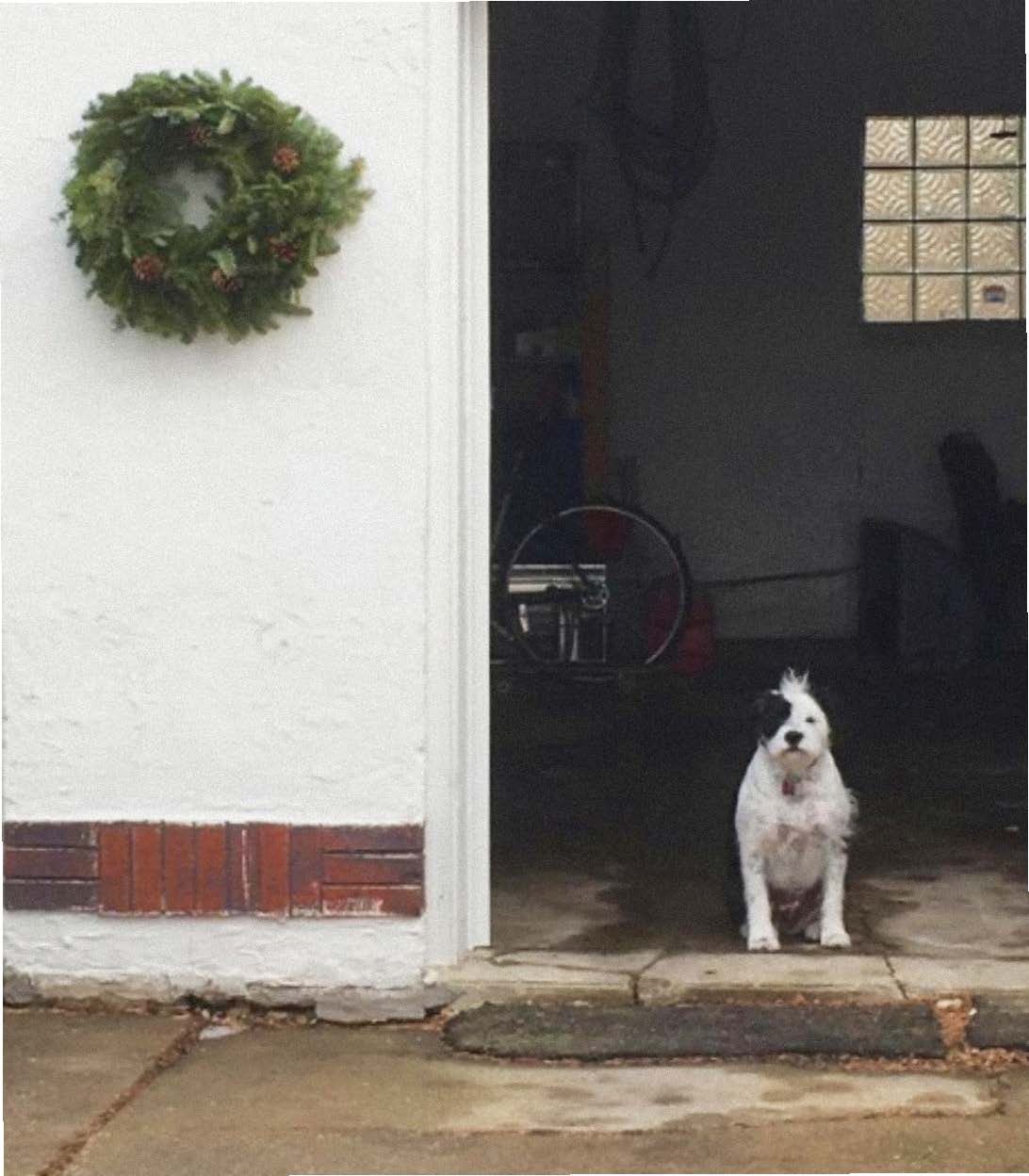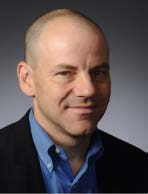Why Lily Takes Great Pictures
The Autism Spectrum "Pets Thing"

Our pets are constant reminders that we don't know everything, and that we have a responsibility to more than just ourselves. These are real, reciprocal relationships – bonds that never stagnate, love affairs wherein we shape one another as we travel – for our dogs get taught more than "sit" or "heel" from us.
BY MICHAEL JOHN CARLEY
I have what some people would call a very photogenic dog. She takes great pictures, and most would assume that such a talent originates in an interesting face coupled with the luck of the camera. But in truth, Lily suffers from a separation anxiety that requires her to constantly monitor me (or Kathryn).
Many dogs can't sit still. Not Lily. When your dog is constantly looking at you, they simply become a lot easier to photograph. Our efforts to reassure her that she will never be abandoned go for naught. She's happy, and well-behaved for sure, but there's a lack of trust somewhere that we cannot seem to heal.
Many pets come to us from rotten first experiences with humans. Humans have been taking their frustrations out on animals since the dawn of man; worse still, for entertainment – setting fire to cats was common practice in the middle ages. Lily, like Bertha and Daphne before her, needed soulful restoration upon
becoming "my dog." But I've come to know the benefits of animals like this. They take longer to bond, but when they choose to bond, the bond is ten times stronger than what would occur had there been no prior trauma.
In the autism world alone, many of my spectrum brothers and sisters have been cited for an elevated knowledge of pets. Whether Temple Grandin making a career from her knowledge of how cattle think, Liane Holliday Willey with horses, Dawn Prince-Hughes with gorillas, Jerry Newport with birds, or the scads of undiagnosed, elderly
"cat ladies" that are out there, we spectrumfolk take these relationships a step more seriously than most. I myself am even known to many family and friends as a fantastic judge and trainer of dogs – a "whisperer," in the current lexicon.
undefinedDOG DAYS: (from top left) Lily, in 2018; Bertha, in 1997; Daphne, in 1988; Marcus, in 1977.
But it's not because spectrumfolk are spiritually-gifted or have some kinetic association with the animal world. Like anyone, we have a lot of love to give. And sometimes it just isn't working out with fellow humans. So we invest our energies more wisely into something that can better reciprocate.
I think I did a pretty good job of figuring fellow humans out. But it took a while. And that process probably got kick-started when I was ten, and my mother finally brought home the pet I'd wanted all my young life. Suddenly I had a dog, Marcus, who among other things got up with me every morning at 4 a.m. to deliver newspapers.
And then there was Daphne, who posed a problem when it was time for college as my mother had married an Englishman, and would live in London. Due to strict overseas pet laws, Daphne couldn't go with her. So I had to choose a college that allowed pets. I and two others eventually even ran the entire campus pet system at Hampshire College. But whatever extra work it entailed was worth it, as I would exit classes to find my "roommate" sitting patiently on the ground outside the building. Daphne would eventually come with me to grad school in New York, and accompany me for the five months I played an eighth-rate Jack Kerouac and lived out of my car, working odd jobs to pay for food and gas.
And in the fourteen years we had Bertha, I became a father. I'll never forget the day I read that fatherless children eventual
ly made for poor fathers. I was horror-stricken, and I panicked. That "won't happen to me." And I think that's why I never refused when my dogs wanted to play. Kathryn and I are a very affectionate couple. But do we greet each other at the door the way our dogs greet us? Does any couple?
It was also during our Bertha years that the rest of the world seemed to learn an increased value in pets beyond protection, rodent killing, and drug sniffing. The concepts of service dogs for people with eyesight
challenges, therapy dogs to soothe the memories of our veterans, or the loneliness of old age… pets burst onto the scene as low-cost, highly effective treatments for trauma and anxiety.
By the time we lost Bertha in 2004, I interpreted that my dogs had served me as a preparer for fatherhood, a job I love, and that was in high gear at the time. Couple that with living in 4th floor Brooklyn walkups (i.e. no elevator) and I was content to be petless for a while. We were without a dog for almost 12 years, and that was a mistake.
Even today, when Kathryn and I sit down to watch a movie, and Lily decides she wants to play-fight with me, Kathryn gets frustrated because she knows the movie has to go on hold. And thanks to Lily and the companions before her, I have tried, as a
as a parent, never to say the words, "Not now," to my children.
Our pets are constant reminders that we don't know everything, and that we have a responsibility to more than just ourselves. These are real, reciprocal relationships – bonds that never stagnate, love affairs wherein we shape one another as we travel – for our dogs get taught more than "sit" or "heel" from us.
• All my dogs have hated leashes, and I have worked hard to place them in spaces where they don't need them (stupid cars…).
• None have been that interested in other dogs despite the many dog parks I take them to. As one friend joked, "Gee, wonder where she got that from?"
• Our loyalty is shared with others, for unless taught not to,
dogs enjoy all people, not just us. And were it not for humans, dogs really wouldn't have many "breeds." Ever wonder why mixed-breeds, or "mutts," are so much more emotionally-stable?
As I've written about plenty of times, I've had more adventurous experiences than most fellow spectrumites.1,2 Seen war, death, extreme poverty and suffering in the preferably limited doses that did not overwhelm. I've cried over it, but I've also seen the best of human behavior amidst the same experiences. When you live a comfy life,
and have experienced or seen no hardship, you protect yourself from the suffering of traumas, but it's also really hard to have confidence because you don't really know who you are. You haven't been tested.
At 13, Marcus was missing one night, and I went out to look for him. His bloodied and crushed body lay mystically under the light of a streetlamp on Elmgrove Avenue (stupid cars…).
I howled as hard as I could as I carried Marcus over my shoulder. I walked slowly, steadily, and not on a sidewalk but in the direct middle of the road. In the dark, three blocks home, lights went on in the windows to see what
the screaming was all about, but no one left their house, no one approached me. They knew the uselessness inherent in asking if I needed help. Why was that the most painful day of my life? And why can so many of us relate to the experience of mourning pets so disproportionately – even when we have beloved friends or family that pass suddenly? This experience does not compare to a significant other, or a child's passing (or does it?). But still…
undefinedDOG YEARS: (from top left) A therapy dog; Lily in 2018; Lily in 2020; and the Carleys in 2018
This piece has been a pleasure to write, but not because our pets are cute or that their love heals better than most therapy. It's been a pleasure because I have been a hypocrite in turning this article in to my editor. I constantly preach that no one needs us to write, or speak about something we're going through. People need to know or hear about what we've been through. We get it that people are overwhelmed and angry. There's nothing more to be learned therein except that people need more help than we think.
But here, in this piece, I am the hypocrite; another flawed set of contradictions, a disappointment to the true animal-loving communities… still figuring it out. I'm not a vegetarian, but I won't kill the food myself. I deplore animal testing for cosmetics and yet I've worn leather. I once thought myself humane because I threw the fish I caught back in the water, believing as I was told that fish feel no pain when the hook goes through their mouth. Now it appears that was nonsense.3 So, I don't fish anymore. I have no desire to hunt and never did. But so long as the kills are eaten, hunting really doesn't offend me either.
I find arguments that guilty humans are better than innocent animals, or vice versa, to miss the point. Such semantics seek a simplistic answer that the natural world is forever telling us will not happen. We still don't know what exists in the ocean's depths, whether trees are communicating with each other when, unseen underground, their roots entwine, or whether there are limits to the real estate of our galaxy. Meanwhile, while we're figuring it all out, true, reciprocated love and family, just for the asking, is offered to us all. We don't even have to deserve it.•
ABOUT THE AUTHOR:
Michael John Carley is the Founder of GRASP, a school consultant, and the author of Asperger's From the Inside-Out (Penguin/Perigee 2008), Unemployed on the Autism Spectrum (Jessica Kingsley Publishers 2016), the upcoming Book of Happy, Positive, and Confident Sex for Adults on the Autism Spectrum… and Beyond!, and the column, "Autism Without Fear," which for four years ran with the Huffington Post. Currently he is the Consultant for Disability Inclusive Culture at New York University, a writer for many, and on Mondays he sees individual clients. For more information on Michael John, or to subscribe to his free newsletter, visit michaeljohncarley.com

References
1. michaeljohncarley.com/images/travel.pdf
2. huffpost.com/entry/autism-without-fear-advice-for-young-autistic-authors_b_9672754
undefined